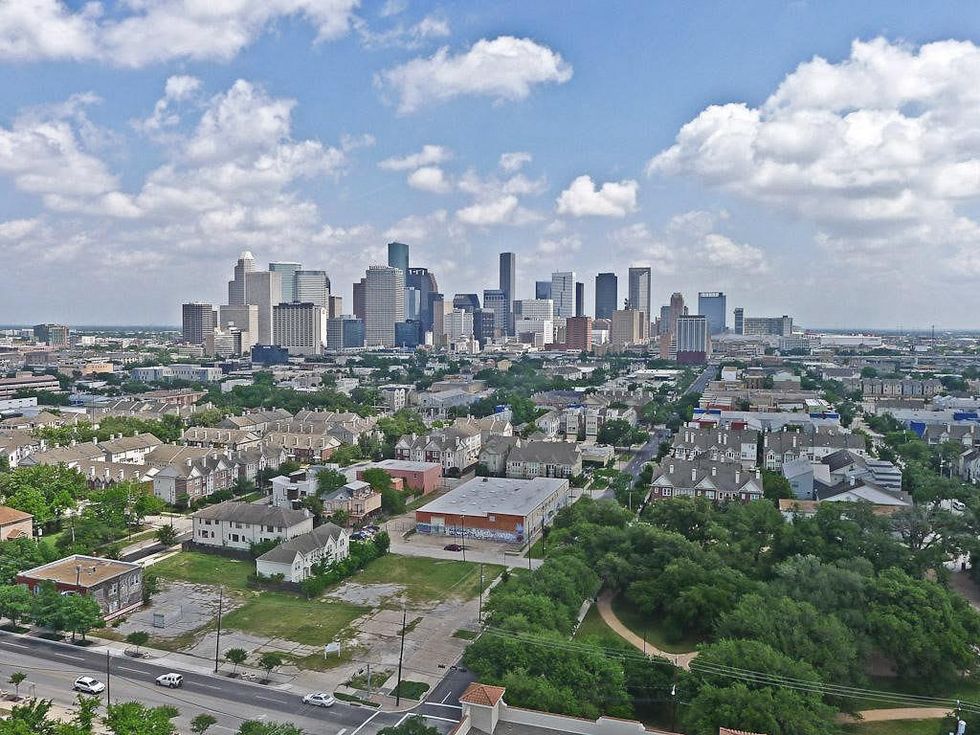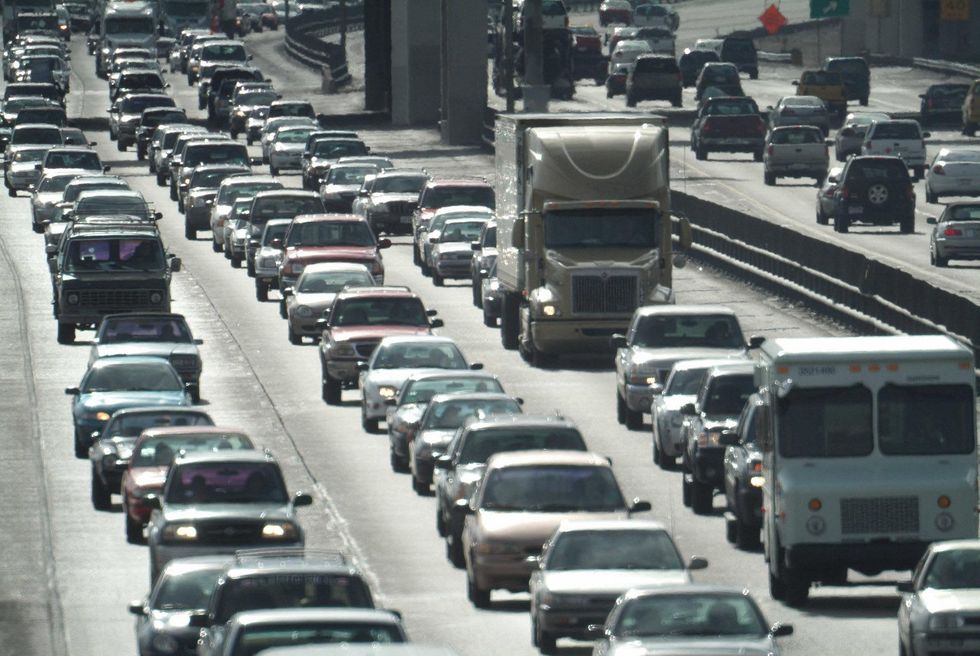Tough choices
No laughing matter: Houston trending in wrong direction with quality of life eroding, report says
A few years ago, our Montrose neighborhood group was fighting a street closure and our councilman, Jew Don Boney, wasn't very supportive. "This is a 'happy problem'," he said, although it didn't seem side-splitting to those of us who were battling to keep access to our neighborhood intact.
I thought of that encounter when a new report about Houston's future landed in my inbox. A report by Rice University's Shell Center for Sustainability warns that Houston's quality of life is eroding and will continue to get worse if tough choices aren't made now.
"We really need to take a more comprehensive look at development in the city," says Lester King, author of the report and a sustainability fellow at the Shell Center. "It just makes sense."
"If we don't perform closely with New York, Chicago and Los Angeles, something is wrong," King says. "We need to to look at those cities and see what they are doing right."
Issues concerning explosive growth and the lack of planning for the future may be considered "happy problems" because it proves that Houston is not Detroit. Nevertheless, Houston is trending in the wrong direction, King says, particularly when compared to the nation's top cities.
"If we don't perform closely with New York, Chicago and Los Angeles, something is wrong," King says. "We need to to look at those cities and see what they are doing right."
Selling planning in a city with a history of nearly unfettered regulation is going to be hard. But with such explosive growth — Houston has grown by one-third since 1990 and is projected to top 2.7 million by 2020 — King is not the only one who believes it's time to address issues where Houston and Harris County lag.
In his annual "State of the County" speech to the Greater Houston Partnership on Tuesday, County Judge Ed Emmett said that for the area to continue to prosper, solutions to such issues as transportation, indigent health care and aid for the mentally ill must be found.
Higher housing
According to the Shell Center for Sustainability study, Houston housing prices may be lower than the national average, but so are salaries. Thirty percent of Houston households spent more than 30 percent of their income on housing in 2010, up from 20 percent in 2000.
And Houstonians are now spending a larger percentage of their income on housing and transportation than residents in other comparable cities.
Houstonians are now spending a larger percentage of their income on housing and transportation than residents in other comparable cities.
In 2010, 46 percent of income in the average Houston household went to housing and transportation, a higher percentage than New York (37 percent) and Chicago (42 percent.)
Car-centric culture
Because Houston is a car-dependent city, we spend more on transportation that almost any other major city. In 2010, Houston led the nation in auto sales; 75 percent of residents drive to work alone in private vehicles — in part because they have to.
Almost 57 percent of all jobs in Houston are located in 17 business centers, yet only about 22 percent of residents live within a quarter-mile of those centers. (In Los Angeles, 90 percent of residents live within a quarter-mile of a business center.)
And we are increasingly spending more time in our cars. Have you driven around the Galleria area, lately?
Traffic is a nightmare and will only get worse, as two new high-rises and a big mixed-use center near completion with the construction of more high-rises on the way within a half-mile of the gigantic shopping mall. With no light rail planned in the area during my lifetime and a bus lane in the early stages, I envision a time in the not-too-distant future when total gridlock develops along Post Oak and Westheimer.
And we are increasingly spending more time in our cars. Have you driven around the Galleria area, lately?
And that's just one part of the city.
Health problems
Other causes for concern: Nearly a third of Houstonians do not have health insurance. And funding for mental health care is so abysmal that many mentally-ill people end up in jail as a last-resort place
“The Harris County Jail should not be the largest mental health facility in the state,” Emmett said in his "State of the County" speech.
White flight
In an issue not many talk about publicly, Anglos have left the city — and Harris County — in record numbers, which is more than a sign of changing demographics, King says.
"It's a sign of a decline in the quality of life or the fact that Houston can't compete with other cities with a higher quality of life."
Solutions needed
King says the exhaustive study points to better overall planning and coordination between agencies as one solution to Houston's growth problems. "We have many planning agencies working at odds with each other," he says.
For example, the city housing authority should be concerned with the development of entire neighborhoods and not just individual housing developments.
"Houston has always been an open place to improve quality of life. We just have to do it."
To address transportation issues, the bus system needs to be more efficient and light rail should be expanded to compete with comparable cities (Chicago has more than 400 rail stations, Houston currently has 16). And incentives to locate housing closer to jobs would decrease road traffic and increase air quality.
The study suggests that more comprehensive and sustainable development doesn't have to reply on heavy zoning. Instead ways to encourage development close to business centers with new codes and cash incentives could achieve the same results, according to the study.
What it takes is Houston ingenuity, King says.
"Houston is definitely at a crossroads. People are interested in making a better quality of life. They are funding HISD, building parks, we still have three new rail lines (under construction or in development). Houston has always been an open place to improve quality of life. We just have to do it."
If that happens, you'll see a smile on my face.
More than two-thirds of Houstonians live within a quarter-mile of a bus stop but trips are long because neighborhoods are separated from work and school.



